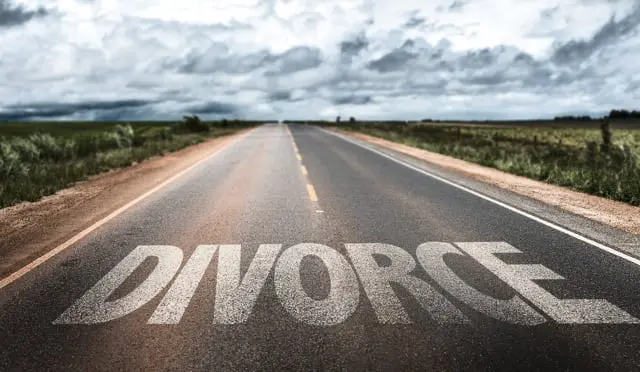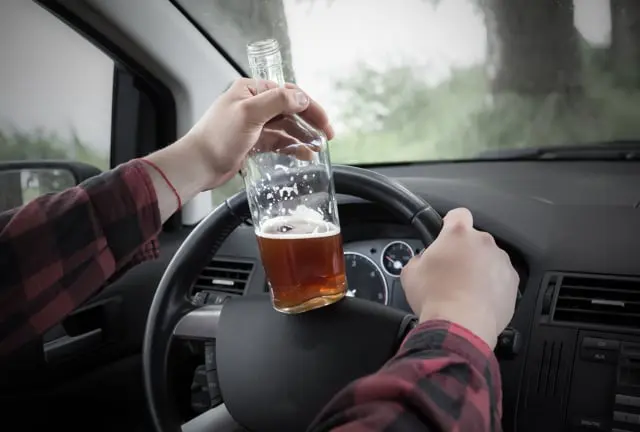Facing a Cargo por DUI in California can be a daunting experience, especially if you have a prior DUI conviction on your record. The legal consequences can be severe, and the implications of a second or subsequent DUI charge are significantly more serious than a first-time offense. In California, prior DUI convictions can drastically alter the legal landscape of your current case, affecting everything from potential penalties to the types of defense strategies available to you. Understanding how a prior DUI conviction impacts your current case in California is crucial for anyone navigating this complex legal situation.
The Legal Framework for DUI Offenses in California
California has some of the strictest DUI laws in the United States. A DUI offense is typically defined as operating a vehicle with a blood alcohol concentration (BAC) of 0.08% or higher. For drivers under the age of 21, the threshold is even lower, at 0.01%. If you are caught driving under the influence, you may face criminal charges, which can include fines, jail time, and the suspension or revocation of your driver’s license.
When you have a prior DUI conviction on your record, the stakes are much higher. California law treats repeat offenders more harshly, imposing stricter penalties and fewer opportunities for leniency. A prior DUI conviction can increase the severity of your current DUI case, making it essential to understand the specific legal ramifications and to seek competent legal counsel.
How Prior DUI Convictions Affect Current DUI Charges
A prior DUI conviction can significantly impact your current case in several ways. First and foremost, it influences the classification of your offense. A first-time DUI offense is generally considered a misdemeanor in California, but a second or subsequent DUI can be charged as a misdemeanor or even a felony, depending on the circumstances.
Aggravating Factors: If your prior DUI conviction involved aggravating factors such as a high BAC, reckless driving, or causing injury or death, your current charge could be elevated to a felony. This elevation is due to California’s “look-back” period, which allows courts to consider condenas anteriores when determining the severity of current charges. Typically, this period is ten years, meaning that any DUI conviction within the last decade can affect your current case.
Increased Penalties: Repeat offenders face increased penalties, including longer jail sentences, higher fines, extended license suspension periods, and mandatory participation in DUI education programs. For example, a second DUI conviction within ten years could result in a jail sentence of up to one year, fines of up to $1,000, and a license suspension of up to two years. Subsequent DUI offenses carry even harsher penalties.
The Role of the Look-Back Period
En look-back period is a crucial concept in California DUI law. It refers to the period during which prior DUI convictions are considered when determining the penalties for a current offense. In California, the look-back period is typically ten years. This means that if you have been convicted of a DUI within the last ten years, it will be counted as a prior offense and can influence the severity of your current charges.
Why the Look-Back Period Matters: The look-back period is significant because it determines whether your current DUI will be treated as a first-time offense or a repeat offense. A DUI conviction that falls within the look-back period can lead to enhanced penalties, including longer jail sentences, higher fines, and more stringent probation conditions. Understanding the look-back period is essential for anyone facing DUI charges in California, as it directly impacts the potential legal outcomes.
Enhanced Penalties for Multiple DUI Convictions
For those with multiple DUI convictions, California imposes increasingly severe penalties. These enhanced penalties are designed to deter repeat offenders and protect public safety. If you are facing a second, third, or subsequent DUI charge, you can expect the following enhanced penalties:
Second DUI Conviction: A second DUI conviction within the look-back period typically results in harsher penalties than a first-time offense. You may face up to one year in county jail, fines ranging from $390 to $1,000, a two-year license suspension, and mandatory completion of an 18-month DUI education program. Additionally, you may be required to install an ignition interlock device (IID) on your vehicle, which prevents the car from starting if alcohol is detected on your breath.
Third DUI Conviction: A third DUI conviction within ten years carries even more severe consequences. Penalties can include up to one year in county jail, fines up to $1,800, a three-year license suspension, and mandatory completion of a 30-month DUI education program. You may also be required to install an IID for an extended period.
Fourth or Subsequent DUI Conviction: A fourth or subsequent DUI conviction is usually charged as a felony, regardless of whether any injuries or fatalities occurred. Felony DUI convictions carry the most severe penalties, including up to three years in state prison, fines up to $5,000, a four-year license revocation, and designation as a habitual traffic offender. Felony DUI offenders may also face additional penalties, such as mandatory alcohol or drug treatment programs and community service.
The Impact of Prior DUIs on DUI Defense Strategies
Having a prior DUI conviction on your record can significantly influence your defense strategy in a current DUI case. Abogados defensores must carefully consider the unique circumstances of each case, including the existence of prior convictions, to develop an effective defense strategy.
Challenging the Validity of Prior Convictions: One potential defense strategy is to challenge the validity of prior DUI convictions. If there were procedural errors or violations of your rights during the previous cases, a skilled DUI attorney might be able to argue that the prior convictions should not be considered in the current case. This strategy requires a thorough review of court records and an understanding of California DUI law.
Negotiating Plea Bargains: In cases where the evidence against you is strong, your attorney may focus on negotiating a plea bargain to minimize the penalties. This could involve pleading guilty to a lesser charge, such as a “wet reckless,” which carries fewer penalties than a DUI conviction. Plea bargains can be particularly beneficial for those with prior DUI convictions, as they can help avoid the more severe consequences associated with repeat offenses.
Exploring Alternative Sentencing Options: Another potential defense strategy is to explore alternative sentencing options, such as participation in DUI diversion programs or alcohol and drug treatment programs. These programs are designed to address the underlying issues contributing to repeat DUI offenses, such as alcohol or substance abuse. By successfully completing these programs, defendants may reduce their penalties and demonstrate to the court their commitment to rehabilitation.
The Role of Probation and Court-Mandated Programs
Probation plays a significant role in the sentencing of DUI offenders in California, particularly for those with condenas anteriores. In many cases, the court may impose probation in lieu of or in addition to jail time. Probation conditions can be stringent, especially for repeat offenders, and may include mandatory attendance at DUI education programs, regular alcohol testing, community service, and the installation of an IID.
Court-Mandated DUI Programs: In California, DUI offenders are often required to attend court-mandated DUI programs as part of their sentencing. These programs are designed to educate offenders about the dangers of impaired driving and to promote behavioral changes that reduce the risk of future offenses. The length and type of program required will depend on the specifics of your case, including whether you have prior DUI convictions.
Compliance with Probation Conditions: Compliance with probation conditions is crucial for avoiding additional penalties, such as extended probation, additional fines, or jail time. Failing to comply with probation conditions, such as missing required classes or failing an alcohol test, can result in a probation violation, which carries its own set of legal consequences.
Legal and Financial Consequences of Multiple DUI Convictions
The legal and financial consequences of multiple DUI convictions in California extend beyond the courtroom. Repeat DUI offenders often face a range of collateral consequences that can impact various aspects of their lives, including employment, insurance rates, and personal relationships.
Impact on Employment: A DUI conviction, especially a felony DUI, can have a significant impact on your employment prospects. Many employers conduct background checks, and a DUI conviction can raise concerns about an applicant’s reliability and judgment. In some cases, a DUI conviction may result in job loss, particularly if the job involves driving or operating heavy machinery.
Increased Insurance Costs: A DUI conviction will also affect your auto insurance rates. Insurance companies typically view DUI offenders as high-risk drivers and may increase premiums significantly or even refuse coverage altogether. This can result in substantial financial burdens for those with multiple DUI convictions.
Personal and Family Impacts: Beyond the legal and financial consequences, multiple DUI convictions can strain personal relationships and impact your standing in the community. Friends and family members may struggle to understand or forgive repeated offenses, and the stigma associated with DUI convictions can lead to social isolation and reduced support networks.
Navigating the Legal System with Prior DUI Convictions
Navigating the California legal system with prior DUI convictions can be challenging, particularly given the complexities of DUI laws and the potential for severe penalties. It is crucial to have experienced legal representation to help you understand your rights and options and to develop an effective defense strategy.
Seeking Experienced Legal Counsel: If you are facing DUI charges in California and have prior convictions, it is essential to seek experienced legal counsel. A knowledgeable DUI attorney can help you navigate the legal system, explore potential defense strategies, and negotiate plea bargains or alternative sentencing options. Your attorney will also ensure that your rights are protected throughout the legal process and that you receive fair treatment under the law.
Understanding Your Rights: As a defendant, you have certain rights under California law, including the right to legal representation, the right to a fair trial, and the right to challenge evidence presented against you. Understanding your rights is crucial for ensuring a fair and just legal process. Your attorney can help you understand these rights and advocate on your behalf in court.
Preparing for Court and Potential Outcomes
Preparing for court is a critical step in navigating your DUI case, particularly if you have prior convictions. The outcome of your case will depend on various factors, including the evidence against you, your prior record, and the strength of your defense strategy.
Recopilación de pruebas: One of the most important steps in preparing for court is gathering evidence to support your defense. This may include witness statements, expert testimony, and evidence that challenges the prosecution’s case. Your attorney will work with you to collect and present this evidence effectively in court.
Anticipating Potential Outcomes: It is also essential to anticipate potential outcomes and be prepared for various scenarios. While your attorney will work to achieve the best possible outcome, it is important to understand that multiple DUI convictions increase the likelihood of harsher penalties. Being prepared for these outcomes can help you make informed decisions and manage expectations.
Conclusión
Understanding how a prior DUI conviction impacts your current case in California is crucial for anyone facing this challenging legal situation. With stricter penalties, enhanced charges, and fewer opportunities for leniency, having a prior conviction significantly alters the legal landscape. By seeking experienced legal counsel, exploring all available defense strategies, and preparing thoroughly for court, you can navigate this complex process more effectively and work towards the best possible outcome for your case.
Attorneys.Media Video Document References
- Is Personal Injury Part of Your Law Practice?
- As an Attorney, How Are You Generating Content for Your Online Presence?
- How Can You Help Potential New Clients Get Their Questions Answered?
- How Do You Differentiate Yourself When Someone Looks Online for Help?
- How Do You Differentiate Yourself as a Criminal Defense Attorney?
- Have You Been Thinking About Video Marketing for Your Law Firm?
- Should Attorneys Use Video Marketing to Attract New Clients?
- What Do Potential Clients See When They Research Your Name Online?
- Cómo puede ayudarle Attorneys.Media








